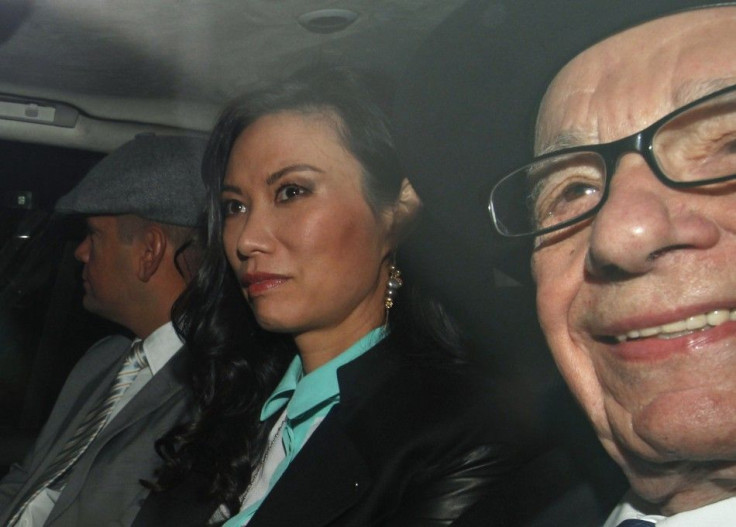Murdoch Denies Using Political Influence To Benefit UK Media Empire

Rupert Murdoch has denied influencing British politicians, adding that he had never asked a prime minister for anything, during an unprecedented grilling of the media mogul before a British probe into phone-hacking allegations on Wednesday.
Speaking before the Levenson inquiry, Murdoch's denial of widespread political leverage by his News Corp. stable of publications and TV channels came as British Prime Minister David Cameron admitted politicians on all sides of the political spectrum had become too close to the Media mogul.
I think we all, on both sides of this house, did a bit too much cozying up to Mr. Murdoch, Cameron told the House of Commons, on Wednesday.
Cameron's coalition government has been eager to downplay its ties to the Murdoch media empire, which includes The Sun, The Times and the former tabloid at the center of the phone hacking scandal, the News of The World.
Testimony by the elder Murdoch on Wednesday followed that of his son James, who on Tuesday told the inquiry how he had met Cameron for drinks before he became PM and discussed how the influential Sun newspaper would support his party in the 2010 election.
Meanwhile, on Wednesday Rupert Murdoch discussed how, in the same election year, he had fallen out with former ally and then Prime Minister Gordon Brown.
Murdoch told the Levenson inquiry he had told Brown his papers would not support the beleaguered premier's Labour Party's bid for re-election.
Your company has declared war on my government and we have no alternative but to declare war on your company, Murdoch quoted Brown as saying.
And I said, 'I'm sorry about that Gordon, thank you for calling.' End of subject.
Murdoch was forced to close his Sunday newspaper The News of The World last year amid allegations the paper had illegally hacked into thousands of cell phones, including celebrities, members of the Royal family and the murdered school-girl Milly Dowler.
The latest revelations in the deepening scandal come as James Murdoch was forced to deny News Corp. had exerted political influence in the lead-up to its failed bid to purchase a controlling stake of satellite broadcaster British Sky Broadcasting Group (BSkyB).
Inquiry counsel Robert Jay, QC, focused on a series of emails sent by Frédéric Michel, News Corp.'s head of public affairs, as he raised concerns that culture Secretary Jeremy Hunt helped to oil the wheels of the bid.
Jay referred Murdoch to the comments on Hunt's own website, which describe him as a cheerleader for the Murdoch family.
Evidence presented before the inquiry on Tuesday suggested News Corp. was receiving insider information from Hunt's office.
On Wednesday, Adam Smith -- an aide to Hunt - resigned after admitting he had gone too far in his contact with BSkyB.
While it was part of my role to keep News Corp. informed throughout the BSkyB bid process, the content and extent of my contact was done without authorization from [Hunt], he said.
Whilst I firmly believe that the process was in fact conducted scrupulously fairly, as a result of my activities it is only right for me to step down as special adviser to Jeremy Hunt.
© Copyright IBTimes 2024. All rights reserved.




















